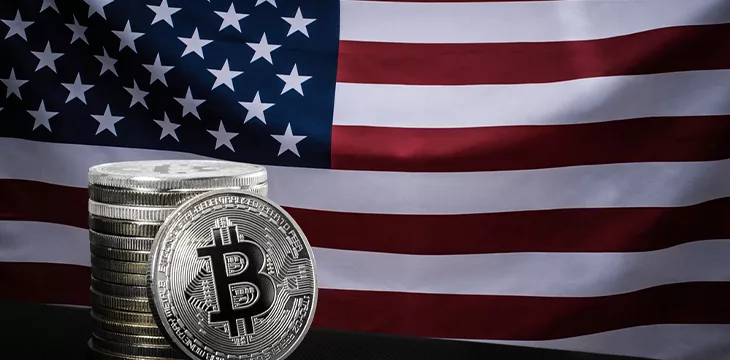|
Getting your Trinity Audio player ready...
|
The Financial Innovation and Technology for the 21st (FIT21) Century Act, which is up for a vote in the United States Congress and aims to provide digital assets regulatory certainty and eliminate grey areas in oversight, has “no chance” of becoming law this year, according to a Monday note by investment bank TD Cowen.
The U.S. investment bank predicted that due to the impending November elections in the U.S. and a reticent Senate the FIT21 bill will not become law in this Congress, despite a good chance of passing its full House floor vote later this month.
However, TD Cowen did suggest that the way Democrats and Republicans vote in the House and Senate may reveal how lawmakers view key issues in the digital asset space, including anti-money laundering and investor protections.
“We believe it would be a mistake to fixate on the details of this legislation. It has no chance of becoming law in this Congress,” wrote the investment bank’s Washington Research Group, as reported by the Block. “Senate Banking has not done nearly enough prep work for the legislation to pass in the Senate. In addition, Democrats are far more focused on investor protections than on what is included in this bill.”
The FIT21 Act aims to give digital assets greater regulatory certainty and eliminate some of the grey areas in oversight that, according to some, have caused frustration for regulators and industry alike. It also widens the jurisdictional authority of the Commodity Futures Trading Commission (CFTC) over the digital asset space and narrows that of the Securities and Exchange Commission (SEC), which has been criticized for a supposedly heavy-handed approach to enforcement.
The bill passed through the committee stage in July last year in a 35-15 vote. One of the leading voices of opposition at the time was House Financial Services Committee ranking member Maxine Waters (D-CA), who labeled the bill a “wish list” for the digital asset industry and argued that “we don’t need to invent new regulatory structures simply because crypto companies refuse to follow the rules of the road.”
Despite seeing FIT21 as unlikely to become law soon, TD Cowen wrote that the bill would be “a critical building block for Congress in 2025/26 when we expect a renewed effort to enact crypto market structure legislation. It puts House members on the record and shifts the focus to the Senate to move its own bill.”
This may provide some timely clarity on where U.S. lawmakers stand, as the future of digital asset legislation in the country seems increasingly uncertain, with a leading contender in the next election Former President Donald Trump sending out mixed messages about the industry.
In the past Trump has called Bitcoin “a scam,” said he would never allow a central bank digital currency in the U.S., and described himself as “not a fan” of digital assets. However, in a seemingly remarkable—but not uncharacteristic—U-turn, the former President recently told digital asset backers and investors earlier this month during a Mar-a-Lago speech that “if you’re in favor of crypto you’d better vote for Trump,” and that when it comes to the digital asset space, he’s now “fine with it.”
In its Monday note, TD Cowen described the confusing Trump factor as a “complication” for the industry, as well as for regulators.
“It is unclear if Trump would stick to this approach if he wins in November,” the investment bank said. “Yet we believe he risks further polarizing crypto oversight, which may make finding a bipartisan compromise more difficult.”
Watch Nouriel Roubini: Bitcoin must embrace the rule of law

 07-03-2025
07-03-2025 





